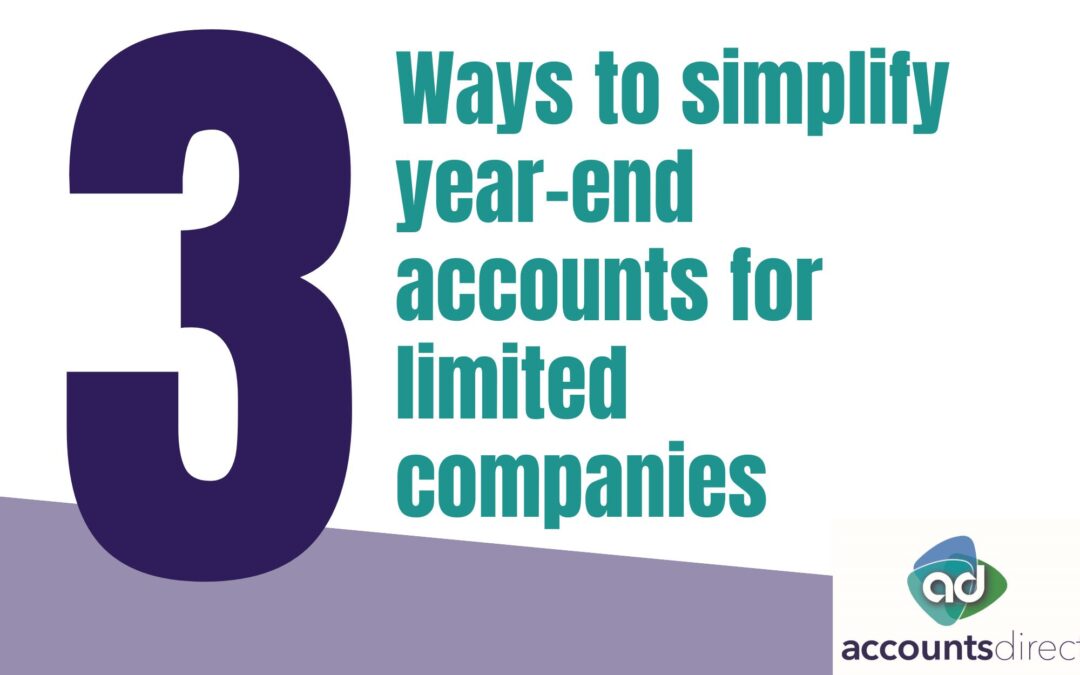By taking actionable steps to simplify your year-end accounts for your limited company, you can save time and resources and use them elsewhere.
Sounds simple, right? Well, the hustle and bustle of business dictates that nothing is as it seems. Before you know it, the financial year is about to finish, and you still haven’t got round to filing your accounts.
But it doesn’t have to be this way. If you make the process easy, you’ll have time to spare rather than wasted hours. HMRC and Companies House will get what they need, and you’ll feel secure in your finances.
How do you do this? We’ll explain.
Keep proper records
One of the most effective ways to simplify your year-end statutory accounts is to maintain accurate and organised financial records throughout the year.
This means regularly reconciling bank statements and keeping documentation of all financial activities — like receipts and bills.
Remember, statutory company accounts must include:
- a ‘balance sheet’, which shows the value of everything the company owns, owes and is owed on the last day of the financial year
- a ‘profit and loss account’, which shows the company’s sales, running costs and the profit or loss it has made over the financial year
- notes about the accounts
- a director’s report (unless you’re a ‘micro-entity’)
By staying organised throughout the year, you’ll minimise the last-minute scramble to gather information during the year-end period and get your accounts and confirmation statement to Companies House before the deadline.
Plan for tax efficiency
Tax planning throughout the year can simplify year-end accounts by ensuring you take advantage of all available tax deductions and credits.
The annual accounts period for corporation tax is 12 months, so there’s a nice easy time frame to work into your tax plan.
By understanding the implications of your business decisions, you can optimise your financial strategies and minimise tax liabilities.
Keep track of changes in tax laws and regulations that may impact your business. This proactive approach can help you avoid last-minute tax-related complications during the year-end process.
Use accounting software
By using accounting software or tools to track income, expenses, invoices, receipts, and other financial transactions when the time comes to pay corporation tax or submit your return, you’ll be well prepared.
Accounting software can streamline tasks like categorising transactions, generating financial statements, and preparing tax documents.
Need more help? Hire an accountant
Hiring a professional accountant can greatly simplify the year-end accounting process and get your company accounts and tax return ready to go before the due date of 31 January. Why? Well, because we’ve done it all so many times before.
Accountants (like us) are well-versed in tax regulations and financial reporting requirements, and can help ensure that your accounts are accurate and compliant.
Look for software that integrates with your bank accounts and other financial platforms to automate data entry.
Remember that each company’s situation is unique, so it’s important to tailor these strategies to your specific needs and circumstances.
Regular communication with your accountant or financial advisor is crucial to ensure you’re following the best practices for your particular business.
Get in touch today to talk about how we can help encourage technology integration in your business.

